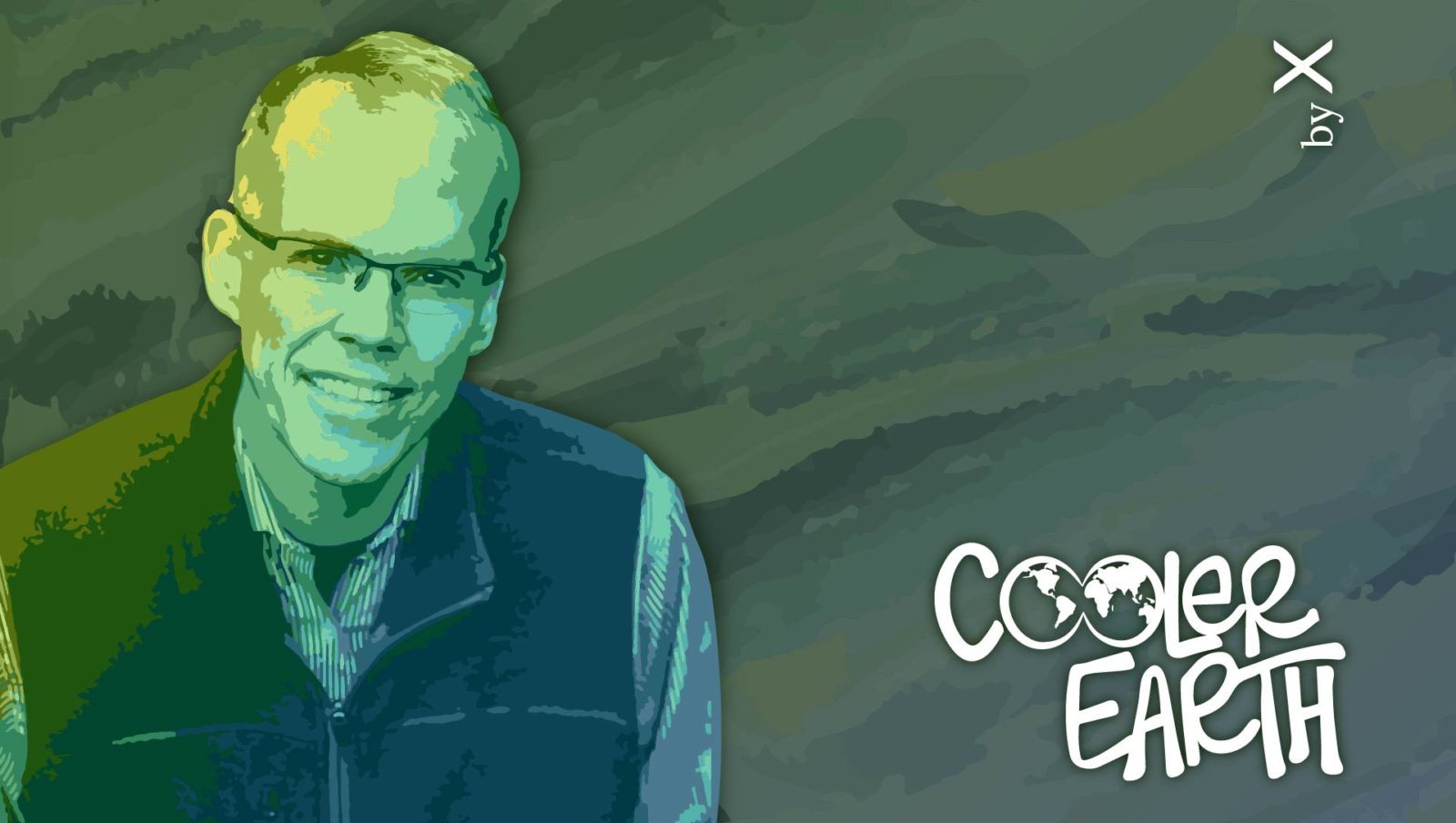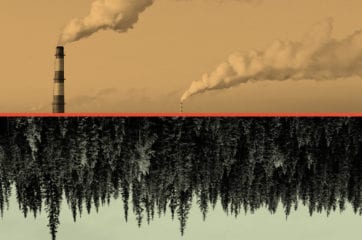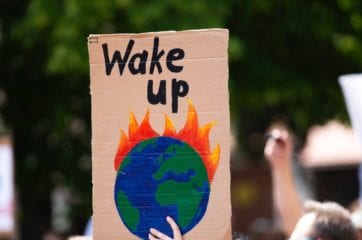If you care about the climate crisis, or generally have been paying attention to the climate movement over the past few decades, it is likely that you are more than familiar with Bill McKibben. He is the person responsible for the divestment campaign against fossil fuels, the founder of the first planet-wide, grassroots climate change movement, he has been a powerful activist, and brilliant author…If you haven’t read anything from him, I suggest that you do — you will be better off for it.
Earlier this year in May, we had Bill join us for a special webinar series we put together in response to the coronavirus lockdown, as we adjusted to life at home. We thought we would bring that conversation to you in this format, and as a way to kick off the fourth season of our podcast.
The conversation, as with any time I read or hear Bill speak, left me with a renewed sense of purpose, and a deep appreciation for the community of leaders and advocates worldwide fighting for a livable future for all of us.
Below is a transcript of the webinar, which you can watch in full here, edited and trimmed for clarity and brevity.
The intersections between COVID-19 and the climate crisis
The fossil fuel industry and “Peak Oil”

Maria Virginia Olano (MVO): As the coronavirus crisis has spread, like with many other crises, it’s acted as a magnifying glass that shows us the social structures that are already not working well for so many of us and so many communities. I wanted to start this conversation by acknowledging a lot of what is in all of our minds, and asking you if there is a way that the current crisis has impacted or shifted your professional focus, and if so in what ways?
Since our conversation with Bill in May of 2020, we have seen an exceedingly active hurricane season, a heat dome cover most of the U.S., and now unprecedented wildfires ravage the West Coast. Read more about the role climate change plays in driving the events we’re seeing today.

Bill McKibben (BM): Well, I’ve had a lot of years to think about disaster and crisis. There’s no silver lining to a pandemic like this, it’s pain and trauma all the way down to the bottom. But if you’re going to go through that pain and trauma, you might as well try to learn a few things along the way.
I think that lesson one is, and this may seem kind of obvious, that physical reality is real. We live in a world where many people think the economy is bigger than the planet instead of the other way around. Think of the words we use to describe our economy — our economy is ailing, it’s on the mend, it’s in recovery, it’s taken a blow, you know. But we’ve always taken the physical world very much for granted. Well I’ve spent 30 years trying to convince people that physics and chemistry are real, and you can’t whisk them away, and that there is no compromise or negotiation with them. The COVID microbe has done the same thing for biology. It doesn’t matter how often our President stands up at the lector and calls it a hoax or says that cases are going to drop to zero, or it’ll be gone by Easter, or whatever his latest thing is, none that actually has the slightest effect on the microbe. If the microbe says stand six feet apart, then stand six feet apart.
Lesson two I think is that speed really matters. I think it’s incredibly imperative to note that the US and South Korea learned about coronavirus on the same day in January, that’s when each had their first case. And what did the South Koreans do? They went right to work. Modest disruption. So they decided, no big gatherings, we’re going to test everybody. The last five or six days, I think there have been no new cases in South Korea. What did the US do? Not a damn thing. We spent all of February pretending in our fantasy way that nothing bad was going to happen, with a President who wasn’t bothering to mobilize or get anything done, more concerned that we might scare the stock market more than anything else. So inevitably, we ended up in a horrible place. So the damage here is going to be enormous economically, and more to the point, even having done that, we’re still going to lose hundreds of thousands of human beings.
There’s no silver lining to a pandemic like this, it’s pain and trauma all the way down to the bottom. But if you’re going to go through that pain and trauma, you might as well try to learn a few things along the way.
That’s what happens when you delay, and it’s a fairly perfect analog about what we have or have not done about climate change. 30 years ago modest interventions, a modest price on carbon, would have been enough to set us on a very different course. It would’ve steered the ship of our economy two or three degrees to starboard, and 30 years later we would’ve sailed into a different ocean. But we didn’t do that thanks to the oil industry and their endless campaign of disinformation. We just kept going ahead, accelerating.
The third lesson from this is that social solidarity matters. A lot. I grew up in the political shadow of Ronald Reagan, long before your time. But you live in that world too — a world that he convinced that markets solved all problems, and that our job was just to pursue individual self interest, and government was the problem, not the solution. In fact, the laugh line he always used was “The nine scariest words in the English language are, ‘I’m from the government and I’m here to help.’” But it turns out that’s not what the scariest words in the English language are, it turns out those words are “Sorry, we’ve run out of ventilators,” or, “The hillside behind your house just caught on fire.” And you can’t solve those problems by yourself. Those are the problems you have to solve by coming together with other people and taking the kind of effective action that only governments can take, and we’re finding out now what happens when we’ve destroyed that system and that way of thinking.
As we look towards recovery from COVID-19 and the resulting economic downturn, we can learn a lesson or two from the American Recovery and Reinvestment Act and the 2009 stimulus investments during the Great Recession. Read More.
There’s understandable impulse to just want to set the pins back in the bowling alley again, and get back to normal, but normal was already a crisis.
Hopefully, as we emerge from this, those three meta-narratives will change some. We’ll be more conversant with physical reality, less tolerant of delay, and more convinced that we’re all in this together. We can talk a great deal about the policies that follow, but the policies are details of those basic ideas.
There’s understandable impulse to just want to set the pins back in the bowling alley again, and get back to normal, but normal was already a crisis. A crisis of rising temperature and a crisis of rapidly rising inequality. And those are things that over the long run we can’t tolerate. They won’t work.
The fossil fuel industry and “Peak Oil”

MVO: One of my favorite lines I’ve heard you say, is that over the past 10 years engineers have done their job just as well as politicians have done theirs poorly. And it just goes to show that we already have the technological fixes, or what would be called a vaccine in terms of the coronavirus, when it comes to solving some of these energy and climate issues. I wanted to get your thoughts on this idea of peak oil, or the maximum rate at which the extraction of petroleum would have been reached. We are certainly seeing the oil industry in a big crisis now, have you been thinking about this at all, and what would the significance be to the larger transition?

BM: You know we used to think, even as recently as a year or two ago, that peak oil would be hit if you were very optimistic, sometime in the early to mid 2020’s and if you were the oil companies you were hoping that it would be 2040 or 2050. I think now it’s very clear that peak oil consumption was almost certainly on this planet in 2019.
I think now it’s very clear that peak oil consumption was almost certainly on this planet in 2019.
That doesn’t mean that we don’t have to worry about climate change, because the question will be how fast does oil consumption go down. And if it takes a long time, then we’re screwed. So the most important thing about being at peak oil consumption is that it helps weaken the power of the fossil fuel industry. Their ability to control events weakens as people realize that there is no growth left in those industries, that we’re never going back to the glory days when Exxon ruled the world. And as people realize that, the fossil fuel industry’s ability to control outcomes and control the political game slips, and that helps enormously, everybody who’s fighting to build renewable energy, and retrofits and insulation and conservation and for, you know, every useful thing on the planet.
This year, Washington D.C. and Minnesota Attorneys General filed lawsuits against Exxon, among many other fossil fuel companies, on the grounds that their misleading and false advertising campaigns infringed on consumer protection rights. Read More.

MVO: Definitely, as we know, it’s not enough to have the oil industry decline, we need to have the growth and expansion of something to replace it. Something that ideally would also advance goals of equity and increase justice in the US. Is there a way in which you envision this particular moment, and which you see and expect massive government spending to best address some of these issues and best position us to make this transition quickly?

BM: I think it’s such an interesting moment because one of the things that is very clear is we’re going to come out of the crisis, and we’re going to be dealing with massive unemployment in this country, the New York Times said this morning, on a scale we haven’t seen since the Great Depression. Well, that’s an interesting historical parallel, what did we do in the Great Depression? Well, thank heaven here came along Franklin Delano Roosevelt and with him the New Deal, which was largely an endless scheme for putting people back to work.
But if you look around our world now and ask yourself, what task exists large enough to soak up large numbers of bodies in need of work, I think the only obvious answer is the transition off fossil fuels and onto renewable energy.
But if you look around our world now and ask yourself, what task exists large enough to soak up large numbers of bodies in need of work, I think the only obvious answer is the transition off fossil fuels and onto renewable energy. I think that this is the obvious place to turn, we need an army of people doing that work. And the good thing about renewable energy is that it’s labor intensive, but not capital intensive. Solar panels do not erect themselves. Somebody has to get up on the roof and pound them in. Your house will not insulate itself, and nobody is going to put it on a boat to China to get it done. It’s going to get done here if it gets done at all. So these are the reasons why the set of policies and ideas that are loosely grouped together under the Green New Deal, are of such importance. And that’s why it’s so interesting to see countries such as South Korea and Germany taking the Green New Deal template as their ticket out of this new depression.

MVO: You often talk about two levers that we still have to pull on in terms of the oil and gas industry, and those are political and financial. And we’ve talked a little bit about both of them, but I think it’s critical to address the fact that oil and gas are still massively subsidized, specifically in this country, and so what does that mean in terms of the barriers to this transition, or how is that going to need to change?

BM: Yes, so let’s talk about those two levers. So the first is the political, and clearly, everything will get much easier if we had an administration and a Congress in Washington that didn’t view climate science as a hoax, and wasn’t in utter coordination with the oil industry. However, even under the best circumstances, political systems move slowly, and even under the best circumstances, Washington no longer dominates the whole world, for better or worse, and most likely for better. So you have to be able to do this political trick in country after country. That’s the reason that working hard on this financial lever, as you put it, is also really important.
The big banks, asset managers, and insurance companies are the pipeline that flows money directly to the fossil fuel industry, and if you can crimp that pipeline, that’s another powerful way to crimp their political power.
The financial industry, I wrote a long piece on this for The New Yorker last summer that kind of lays this case out, the point of the piece was that the big banks, asset managers, and insurance companies are the pipeline that flows money directly to the fossil fuel industry, and if you can crimp that pipeline, that’s another powerful way to crimp their political power. This grew out of the work that we’ve been doing around divestment of fossil fuels. We’re up to $14 trillion in endowments and portfolios that have divested in part or in full of fossil fuel dollars, and that’s been very effective. So now we move one ring out, and start to put pressure on those banks and asset managers. Markets react with enormous speed to new information and data, they aren’t like Congress or governments that react slowly. And they also react globally. Washington may not rule the world anymore, but Wall Street still kind of does.
Bill recently started a newsletter with The New Yorker titled “The Climate Crisis,” where he delivers his perspective on the latest in the climate movement. You can read or subscribe here. Sign up here..
The Global Climate Movement

MVO: I want to talk about the role of civil disobedience. As you mentioned, there was a strategic campaign plan that now has to be re-thought because of what we’re going through right now, but I wonder, is there, has there been a shift in the way you conceive the role of civil disobedience through your career, and how do you conceive of it now?

BM: Well, it’s a little hard to know yet how we do this all online, we’re all looking around and figuring it out. We hope that it won’t last forever, because civil disobedience is a remarkable thing. The last chapter of my last book, Falter, argued that the two most important inventions of the 20th century were the solar panel and the non-violent social movement. And I think, taken together, they’re what we have to hope for in this century.
It’s almost as if non-violence is a kind of technology itself, pioneered by the suffragists, by Doctor King, by millions and millions of other people whose names we don’t know or have forgotten. And what they’ve figured out is a kind of technology that allows the small and the many to stand up to the mighty and the few, which is precisely the position that we’re in.
The last chapter of my last book, Falter, argued that the two most important inventions of the 20th century were the solar panel and the non-violent social movement. And I think, taken together, they’re what we have to hope for in this century.
So I think it’s been very good to see how that power works. I think we all used to good effect, for instance, at the start of the fight about the Keystone Pipeline in 2011. 1,200 and some people went to jail, more than had gone to jail in this country for anything in a long time, and it put that fight on the map, and the reason that was important was not only the 800,000 barrels of oil a day that we’ve kept in the ground for the last decade, but, the fact that people showed that it was possible to stand up to big oil, something no one knew before. And as a result, now everybody fights everything. No one builds a frack well, a coal mine, an LNG well, for free anymore. It’s always a fight, and that’s good.
Now everybody fights everything. No one builds a frack well, a coal mine, an LNG well, for free anymore. It’s always a fight, and that’s good.
I try not to get angry too often, but one of the things that made me really angry was to watch the oil industry try to use the pandemic as a cover to go about its business. We’ve stopped the Keystone Pipeline for more than a decade, but the minute the coronavirus hit, the company building it announced that it was going to send workers from around the country, probably many of them carrying this virus, into rural areas with bad health care systems, and on the edge of native reservations near populations where 90% of people have died from pandemics over the last 500 years. And they were going to do it because they knew we couldn’t stop them. Happily, we got a good federal court ruling a few days ago that seems to be slowing down that work. I still think the Keystone Pipeline may never get built, but even if it does, that’s been the most worthwhile struggle I’ve ever gotten to be a part of.
Indigenous groups and environmentalists were victorious this summer in their fights against fossil fuel pipelines. The Dakota Access Pipeline was ordered to be shut down citing the need for further environmental review; the Supreme Court rejected efforts to continue construction on the Keystone Pipeline; and activists were able to get plans for the Atlantic Coast Pipeline cancelled. Read More..

MVO: Bill certainly, and I think you are starting to talk about the power of people and really the power of this movement, which is going through something that I think is so exciting now: it looks a lot more like the world looks, in terms of representation, and inclusion. I wanted to get your thoughts on why it is so important that intersectionality is intrinsically a part of the movement and a part of all solutions. What do you say to people who are either unable or unwilling to recognize this need to tackle overlapping injustices together?

BM: Well I think it’s been one of the great parts of things like the Green New Deal, and understanding that you don’t get the luxury of just dealing with one little part of this at a time. Maybe if we’d started 30 years ago, we could’ve just put a little tax on carbon, and then things get better and so on, and then you kick the other problems down the road. Maybe it’s better that now we’re having to deal with things all at once. What that means is understanding that we need everybody doing it. The good news is that individuals living in front line communities and Indigenous communities are basically now leading the climate fight.
The good news is that individuals living in front line communities and Indigenous communities are basically now leading the climate fight.
I think above all the rise of Indigenous leadership in the climate movement has been the most beautiful story of the last decade. People saw Standing Rock and the encampments there and were amazed, but I wasn’t amazed at all because I’d known that these are leaders for a long time, they’re the people I’ve been working with. And not just here, by the way, in South America, in the South Pacific, in Australasia, in Africa — everywhere, Indigenous people play a huge role, and I think that that’s really important for two reasons. One, practical. When we exiled Indigenous people we often stuck them on places that seemed at the time worthless but now have turned out to be on large deposits of hydrocarbon, or astride the pipeline routes you need to get them. And for another reason that’s more metaphysical. There’s something useful about the fact that the oldest wisdom traditions on the planet and the newest wisdom traditions are synched up. The view from the sweat lodge and the view from the satellite and the super computer are not that far apart. And what they tend to be telling us is that this view the the rest of us hold of endless economic growth is kind of nonsense. And that we better learn different ways of living on the planet. This is what we need to be doing in the movement.
Indigenous groups are among the communities who are already facing the disproportionate impacts from the climate crisis, but that doesn’t stop them from working to address it. Learn more about how Indigenous Nations are leading on lasting climate solutions. Read More..

MVO: And let me say, this is one of the things I admire the most about you, because you not only talk about “passing the mic,” but you actually do it, and that is refreshing and brilliant to see. I found myself thinking back on a piece you wrote for Rolling Stone, where you tell a story about your daughter saying to you, “I think you should probably be less famous in the years ahead.” And you agree, not because your work is any less relevant, but because the movement needs less leaders as heads, and more people engaged and doing the work. I’m curious if you had, for any of us listening here, any reflections on how to show up best as an ally, to raise those voices and to be the best that you can be for this movement.

BM: For me, that’s the fun part. All I ever really wanted to see was a big climate movement. What fun to watch young leaders like Varshini Prakash, who divested UMass Amherst when she was in college, and then rounded up AOC to be the face of the Green New Deal. What fun to see extinction rebellion come of age in Europe and take these ideas of civil disobedience in new directions. Greta Thunberg is magnificent, and it’s been a great pleasure to get to know her, and by the way, very thankful to be able to report that both she and her dad seem to be recovering from coronavirus very easily and well now. But there are 10,000 Greta Thunberg’s all over the world now. The number of young people who are working on this stuff is amazing.
But there are 10,000 Greta Thunberg’s all over the world now. The number of young people who are working on this stuff is amazing.
The only thing I worry about is that adults are going to see all that action and think that it’s okay to offload the greatest problem the world has ever faced onto the shoulders of high school sophomores. And that’s not okay. They are playing a huge role in raising consciousness, but they can’t vote and don’t have credit cards, so the rest of us better do our part too. None of this is to say, and this is the hard part, that we are going to win this fight. We don’t know. It’s not like other fights, because it’s a timed test. And if we don’t win it soon, we’re not going to win it, and we’re obviously not going to win it outright. We’ve already seen hideous damage, and we will see a lot more. We found out yesterday that April was the warmest April on this planet. There’s a 75% chance that 2020 will be the hottest year on record. And that’s in a year without an El Niño, so it’s a clear sign that things are accelerating and getting out of control. So we’ve got a huge amount of work to do and a narrow window of time in which to do it.

MVO: Definitely. Another thing that I think a lot about when I was mentioning the introspection of the movement and how we can best show up and precisely avert these consequences that you say and act quickly and fast, is a bit of the fracturing that we see within the movement itself. And this ongoing thing we see of us imposing purity tests on each other, and fracturing in ways that don’t serve the overwhelming goals that we face today. How do you go about dealing with that and what advice do you have for the rest of us in how to mitigate that?

BM: So the most recent example is this movie, Michael Moore’s Planet of the Humans that came out on YouTube. And I was really worried about it for a little while — was this going to split everything apart? I think, maybe not. The debunking of it has been so thorough and deep I’m not sure there’s ever been a cultural product that has ever been debunked by more people and more places. Someone sent me a day by day — it’s like a 170, written out essays, and podcasts, and movies, just explaining the endless factual idiocy of this thing. And I think maybe, it may almost have a unifying effect, as much as a dividing effect. That may be wishful thinking, but let’s hope.
The world is way outside its comfort zone, which means we need to be outside ours. Which means, yes you have your particular answer that you think is most important, that’s good, and work on it, but also come together with others in those moments when it’s possible as a movement as a whole to make big progress.
We, in the broadest terms, [must] be as unified and as broad a movement as possible in order to do the thing that is most important which is to stand up and break the power of the fossil fuel industry. And once that’s happened, then there’s room. It’s not like we haven’t known for a long time what all the policies are to deal with the situation we are in. They range from prices on carbon to big support for renewables, to keep it in the ground policies. It’s not for lack of policies that is the problem, it’s that we haven’t been able to get them done over the dead weight imposed by the coal, oil and gas industry.
Again, whether we can do it in time or not — we don’t know. We know that 75 years from now the world will run on sun and wind because it’s cheap and clean. But if we keep going at the pace we’re going at the moment, the world that runs on sun and wind will be a broken world. So our job is to speed up that transition. The world is way outside its comfort zone, which means we need to be outside ours. Which means, yes you have your particular answer that you think is most important, that’s good, and work on it, but also come together with others in those moments when it’s possible as a movement as a whole to make big progress.

MVO: And that’s what we often refer to as the “yes, and” approach in climate solutions. That we shouldn’t be detracting from one another or fighting over these things because the reality is that we’re actually going to need all of them. I do want to say Bill, I truly admire the grace with which you handled the lies and deception in that film, and I know that cannot have been easy, but I appreciated your responses and your thoughtfulness.
In closing, I wanted to end with a question: What is one thing that you would tell your younger self about movement building, organizing, or particularly storytelling, that could serve some guidance to those entering the fray today.

BM: Maria, it’s a great question. I think it took me a long time, and I think it took the movement a long time, to understand that as important as individual action is, it is not the way that we’re going to solve this crisis. We’re way past the point that you can make the math work one Prius at a time. So I think my mantra in the most recent years has become, “the most important thing an individual can do, is be a little less of an individual and join together with others in movements large enough to make change.” We don’t need everybody in the same place. We don’t need 51% of people all the time. We do need some strong segment of the population really engaged in this fight and working hard.









